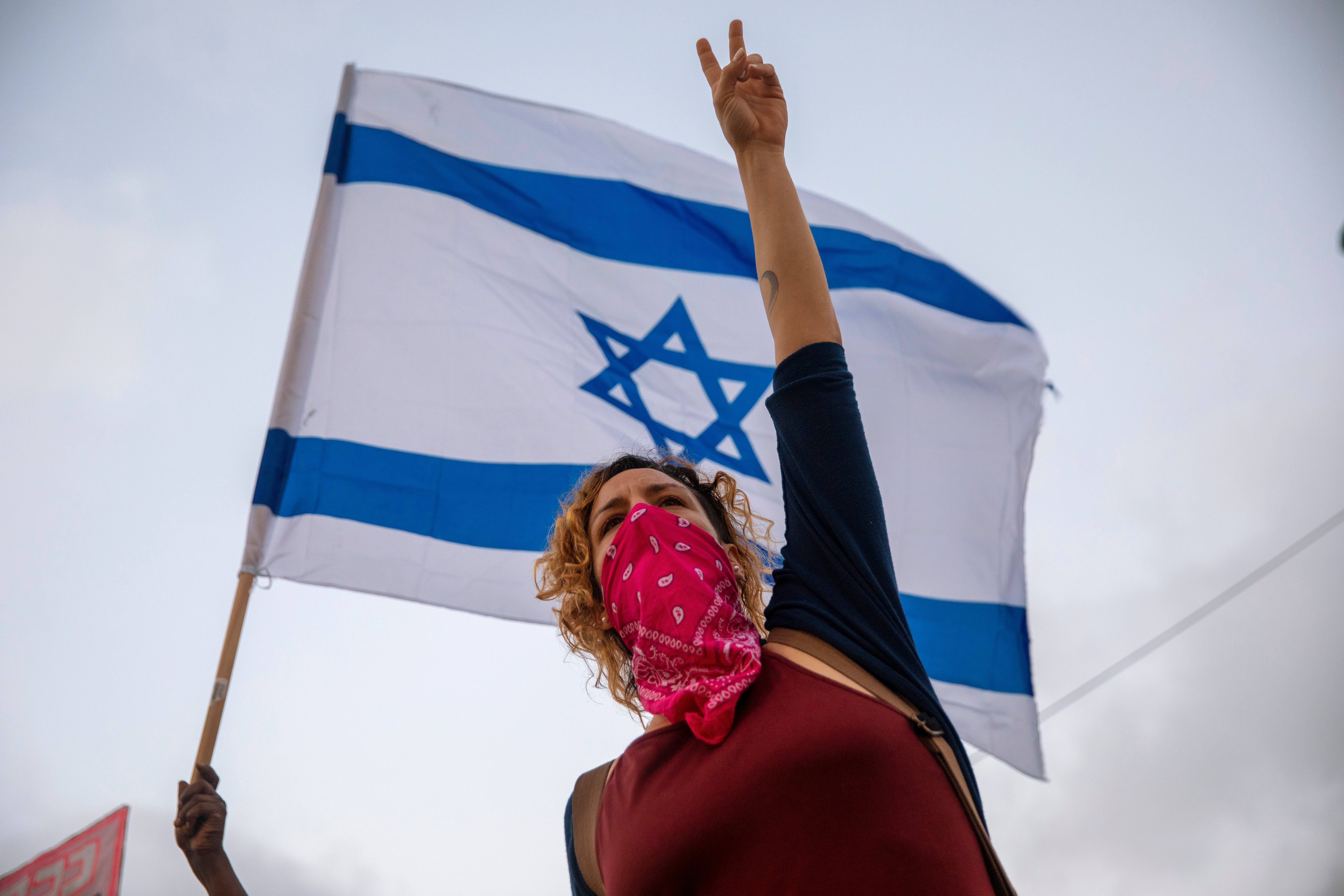Israel approves law to curb protests during virus lockdown
Israel’s parliament has passed a law that would allow the government to curtail public protests during the country’s nationwide virus lockdown

Your support helps us to tell the story
From reproductive rights to climate change to Big Tech, The Independent is on the ground when the story is developing. Whether it's investigating the financials of Elon Musk's pro-Trump PAC or producing our latest documentary, 'The A Word', which shines a light on the American women fighting for reproductive rights, we know how important it is to parse out the facts from the messaging.
At such a critical moment in US history, we need reporters on the ground. Your donation allows us to keep sending journalists to speak to both sides of the story.
The Independent is trusted by Americans across the entire political spectrum. And unlike many other quality news outlets, we choose not to lock Americans out of our reporting and analysis with paywalls. We believe quality journalism should be available to everyone, paid for by those who can afford it.
Your support makes all the difference.Israel's parliament on Wednesday passed a law that would allow the government to curtail public protests during the country s nationwide coronavirus lockdown, a measure that drew fierce opposition a day earlier.
The law allows the government to declare a special week-long state of emergency if the coronavirus spreads out of control. If such a state is declared, the government would be able to limit participation in assemblies, including protests, to 1 kilometer (0.6 miles) from a person's home, effectively putting a halt to large weekly demonstrations outside Prime Minister Benjamin Netanyahu s residence.
The Knesset approved the bill 46-38 during a late-night session that stretched into the morning hours.
That measure is widely seen as a bid to squelch protests against Netanyahu, which have drawn thousands each week outside his official residence for the past several months.
They are the largest sustained demonstrations against Netanyahu in nearly a decade, and call on the longtime prime minister to resign while on trial for corruption charges and accuse him of bungling his management of the coronavirus crisis
Netanyahu has said the protests must end due to public health concerns. But protesters say he is using the crisis as a pretext to muzzle them.
Netanyahu is on trial for fraud, breach of trust and accepting bribes in three separate cases. He has denied any wrongdoing, accusing the media and law enforcement of an orchestrated "witch hunt" against him.
Earlier this month, Israel declared its second countrywide lockdown, and tightened restrictions further last week in a bid to rein in one of the world’s most severe coronavirus outbreaks. Schools, malls, restaurants and hundreds of businesses are shut.
The lockdown went into effect on Sept. 18, just before the Jewish New Year, and was initially slated to be lifted on Oct. 11. But Israeli officials are now saying the lockdown is expected to run longer as new COVID-19 cases continue to climb.
Israel, a country of around 9 million people, has recorded over 235,000 cases of the novel coronavirus and more than 1,500 deaths, according to Health Ministry figures. The ministry said Tuesday the country has for the first time surpassed the U.S., one of the world’s worst-hit countries, in per capita daily coronavirus deaths.